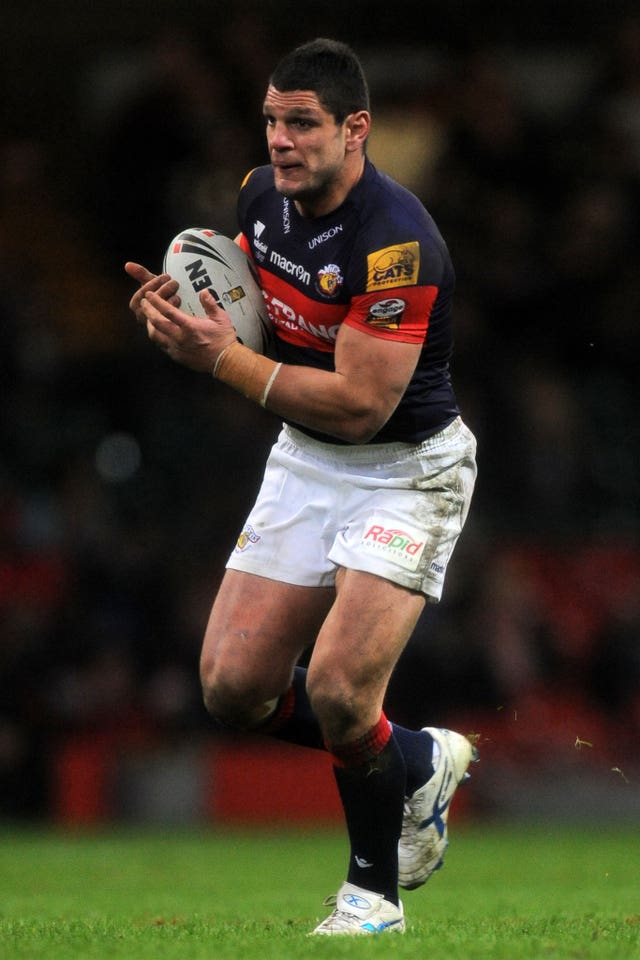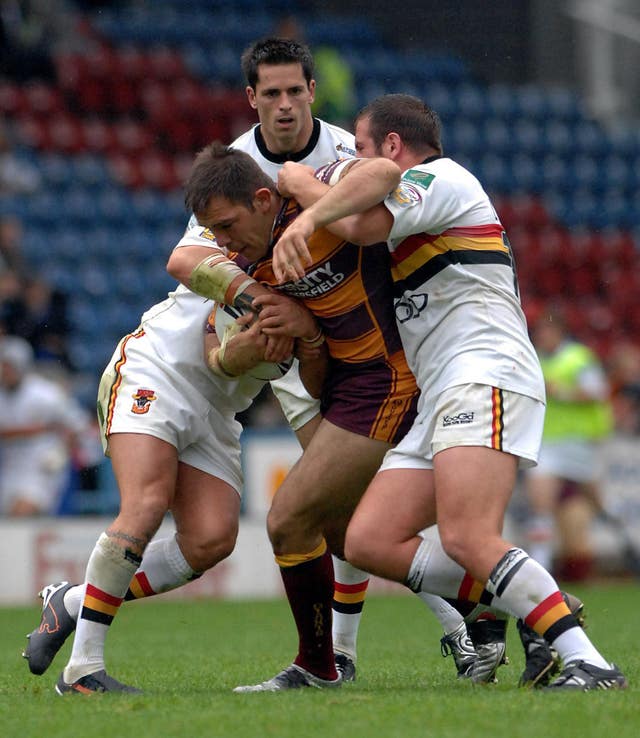When Greece run out against England in front of a 20,000-plus crowd at next year's Rugby League World Cup, organiser Terry Liberopoulos will cast his mind back three years to a qualifier played at midnight behind closed doors in Athens.
Of the eight nations who had to qualify for the 2021 tournament in England, none has had to overcome the difficulties encountered by Greece, where rugby league struggles with a bitter dispute between two rival bodies.
With the president of the banned Hellenic Rugby League apparently doing his best to cause disruption, Liberopoulos went to extraordinary lengths to ensure his country's crucial tie against Malta went ahead in September 2018.
"We couldn't tell Malta where the game was going to be played because we didn't want it to be stopped by the police," he said.
🇬🇷 @GreekRL sees progress at home following a dispute over recognition of the official governing body. This comes after their qualification for #RLWC2021
📰 https://t.co/1VhabQWamV pic.twitter.com/LaMiBjQM0R
— Rugby League World Cup 2021 (@RLWC2021) January 30, 2020
"I actually want to Patras, which is a three-hour bus ride away, and took photos which I put up on social media – it was basically a decoy – and we secretly played in Athens.
"A lot of games are played late at night because we can't use the council grounds and a lot of private grounds are being used by soccer so we have to wait until they've finished.
"But Greeks go out late any way – they eat dinner at 10 o'clock – and the game dragged on past midnight.
"It's a good yarn. It was sad we had play to play in secret."

With the situation still unresolved, Greece were forced to forgo home advantage and switch last November's group qualifier against Scotland to London.
Coached by Steve Georgallis, the former Carlisle, Wakefield and Warrington player, they went on to lose 42-24 but beat Serbia 82-6 in Belgrade a week later to become the 15th team to secure their place in the 16-team competition and are now setting their sights on 2021.
The Greeks, who are set to take on England at either Sheffield United's Bramall Lane or the University of Bolton Stadium, have also been paired with Samoa and France in Group A, and Liberopoulos, a Sydney-based magazine publisher and board member of the Greek Rugby League Association, says they intend to make the most of the occasion.
"Imagine playing in front of 20,000 to 30,000 people," he said. "This is going to be great for the players, the guys in Greece can say look at what we've achieved."
🇬🇷 From playing games at midnight to @Jason15Robinson pulling their name out in front of HRH, The Duke of Sussex at Buckingham Palace in the #RLWC2021Draw!
How do you think this group will go? We can't wait to see you, @GreekRL! #RLWC2021 pic.twitter.com/STa2EIWmM1
— Rugby League World Cup 2021 (@RLWC2021) January 18, 2020
Along with fellow qualifiers Jamaica, Greece are the most unlikeliest of rugby league playing nations but, as with Italy and Lebanon, the roots were planted in multi-cultural Sydney.
Liberopoulos' parents moved from Greece to Australia in the Sixties and he grew up next to Newtown Jets, one of the most famous rugby league clubs who were in the main New South Wales competition up to 1993.
The idea for transplanting rugby league to the Mediterranean came from a chance meeting with another Greek, Colin Mylonas, and the pair received 20 replies to an advertisement place in Liberopoulos' magazine.
History was made when the Greeks played Italy in Sydney in 2003, a match which drew a 4,000 crowd, while the first international in Greece was against Serbia in Athens in 2006, a few days after the first domestic game in the country.

Former Wakefield prop Michael Korkidas captained the team to a 44-26 victory and, among other notable players since then have been former Australia international Braith Anasta, who scored 46 points in a 90-0 rout of Hungary, and ex-Huddersfield front rower John Skandalis.
The national team went into hibernation for a while but in 2012 Liberopoulos found a new ally in Brisbane-born George Stilianos, who was working in Athens, and the sport has since laid down firm foundations.
There is a seven-strong domestic competition comprising four clubs in Athens – Athens City Raiders, Attica Rhinos, Aris Eagles and AEK – plus Larissa, Patras Panthers and Rhodes Knights.
"The guys in Greece are doing a fantastic job to keep rugby league going," Liberopoulos said. "It's been going there now for seven or eight years and it's growing every year."
The league is currently suspended due to the coronavirus which has brought a halt to talks with the Government aimed at gaining official recognition.
Liberopoulos also expects matches against Serbia and Russia in the European Championships at the end of the year to fall victim to the pandemic but says the team will play matches in the build-up to 2021 and there will be a heavy concentration on domestic players.
"Some people still laugh at us, saying we are just Aussies dressed up but that's far from the truth," he added.
"We're not going to win the World Cup, let's be honest, but we want to be competitive and we want to build around that. We want to be strong for a long time."
/https%3A%2F%2Fsportsmole-media-prod.s3.gra.io.cloud.ovh.net%2F15%2F22%2Frugby-league.jpg)
/https%3A%2F%2Fsportsmole-media-prod.s3.gra.io.cloud.ovh.net%2Fuploads%2F2025%2F11%2Fshaun-wane-690d97cdedade127969161.jpg)
/https%3A%2F%2Fsportsmole-media-prod.s3.gra.io.cloud.ovh.net%2Fuploads%2F2025%2F10%2Faustralia-rl-6904161284f0b285606488.jpg)
/https%3A%2F%2Fsportsmole-media-prod.s3.gra.io.cloud.ovh.net%2Fuploads%2F2025%2F10%2Fsuper-league-trophy-68e829446e969796680938.jpg)